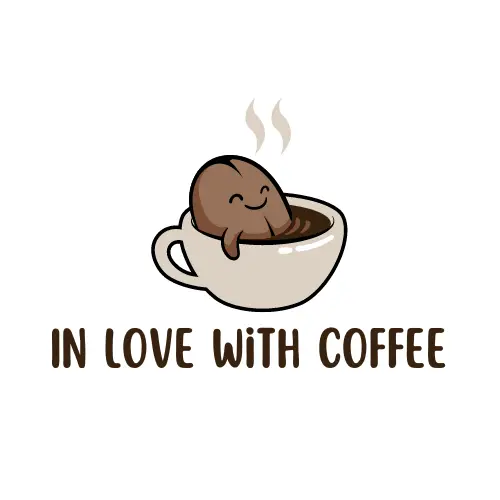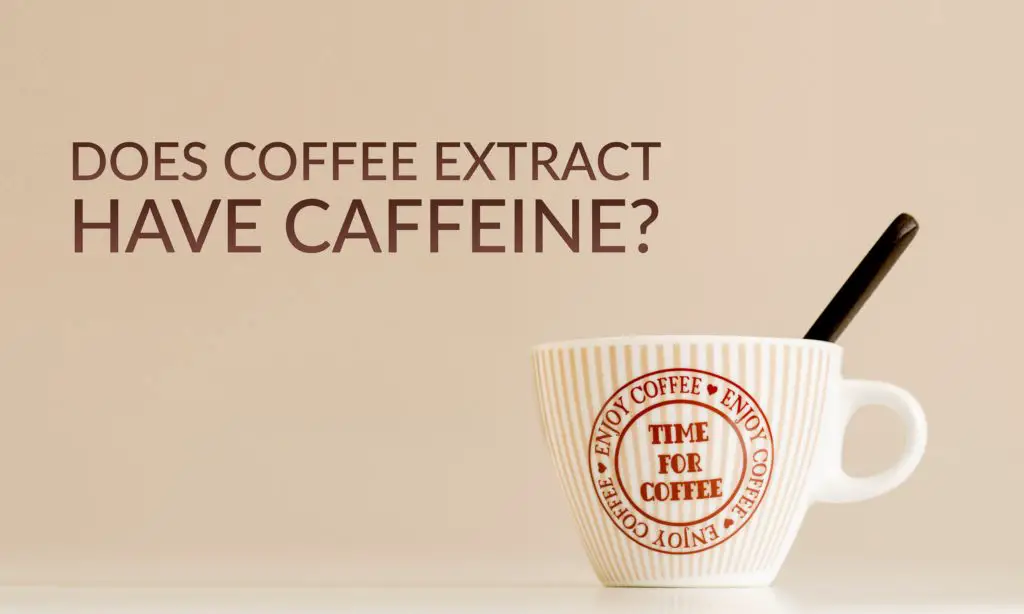Do you ever wonder if there is caffeine in coffee extract? If so, you’re not alone. Many people are curious whether coffee extract contains caffeine because it can be a convenient way to get the stimulant without having to drink multiple cups of coffee each day. In this article, we’ll look at how the coffee extract is made and what chemicals are present in it. We’ll also discuss whether or not coffee extract contains caffeine and, if so, how much.
What is a coffee extract?
A coffee extract is a type of supplement that contains caffeine. It can be found in many forms, including capsules, tablets, and liquids. Coffee extracts are often used by people who want to increase their daily caffeine intake without having to drink multiple cups of coffee throughout the day. They can also be used as an addition to diet programs or weight loss strategies.
How does coffee extract work? Coffee extracts contain certain amounts of caffeine, which is why they can boost energy levels and improve cognitive function (especially during sleep). They also help you feel more awake and alert throughout the day. In short, coffee extracts provide all the benefits of drinking regular coffee cups without any negative side effects.
How is a coffee extract made?
As coffee is one of the most popular beverages in the world, it’s no wonder that there are a variety of ways to make it. Here, we’ll look at how the coffee extract is made – using whole coffee beans and alcohol.
Firstly, whole coffee beans are crushed up coarsely into small pieces. This process helps release their flavor and nutrients (such as caffeine) while breaking down some cell walls. The mixture is then left to sit for several weeks or months in alcohol, during which its flavor will be slowly extracted.
The final product can vary depending on how long the process takes – but in general, extraction results in a milder taste and a more flavorful cup of java!
Is coffee extract the same as coffee essence?
Coffee essence is a term used to describe coffee beans’ natural flavor and aroma. Coffee extract is a more concentrated form of this flavor and aroma, extracted from roasted coffee beans. Many people believe that coffee essence and extract are basically the same things, but there are some key differences between them.
Essence is made from roast-only beans (as opposed to ground), which results in a more flavorful product. The extract also contains higher levels of caffeine than the essence, making it more energizing. Finally, extraction uses water or ethanol to break down the compounds in the bean pod. This process creates a high acidity (which contributes to taste).
So why would you want to choose one over the other? Essence is typically less expensive than extracts but will provide less nutritional value or caffeine content. On the other hand, extracts may be too intense for some people and contain fewer flavors or aroma nuances. It depends on personal preference, so experiment until you find the best combination of ingredients.
Is coffee extract real coffee?
Yes, coffee extract is made with real coffee beans. Coffee extract is a popular dietary supplement that contains caffeine and other nutrients, including antioxidants. It’s often used to help people stay awake or boost their energy levels. Coffee extracts are also used in foods and beverages, such as cappuccinos and smoothies.
It’s often used by people who want to increase their energy levels or improve their cognitive performance. The coffee extract can also be helpful for people who are trying to lose weight because it helps them feel fuller and longer and reduces the number of calories they eat.
Is there caffeine in coffee extract?
Yes, there is caffeine in coffee extract. Coffee extract is a blend of ground coffee and water extracted with either alcohol or steam. This concentrated coffee contains more caffeine than regular brewed coffee, which can have up to twice the amount of caffeine as regular brewed coffee.
Some people find their energy levels increase after consuming coffee extract, while others feel jittery and anxious. If you are sensitive to stimulants, it’s best to avoid coffees containing high amounts of caffeine extracts should only be consumed in small doses (usually no more than eight ounces per day).
How much caffeine is in coffee bean extract?
Pure coffee bean extract is a popular product that contains caffeine, and many people believe it to be a powerful tool for weight loss. However, what exactly is in coffee bean extract? And how much caffeine is it capable of containing?
The coffee extract’s caffeine content is between 80 and 300 mg per serving. That’s equivalent to up to twice the amount of caffeine as regular brewed coffee! If you’re looking for an effective way to reduce your calorie intake, adding coffee bean extract to your diet is a good option.
Which coffee extract has the most caffeine?
Many coffee extracts contain caffeine, but one extract is more popular because it has more caffeine than any other. That extract is called Robusta coffee bean extract, and it’s made from the beans of the Robusta species of the coffee plant. Robusta beans are high in acidity (which helps to preserve the flavor and color of the coffee) and bitterness (which gives Robusta its characteristic taste). These two properties make them ideal for making coffee extracts.
How much caffeine does Robusta coffee extract contain? The average serving of brewed Robusta coffee extract contains around 97 milligrams of caffeine, which is more than double the amount found in an average cup of regular joe! So if you’re looking for a strong cup of joe that will give you energy throughout the day, look no further than a mugful of Robusta java.
Does green coffee bean extract have caffeine?
Yes, green coffee bean extract does have caffeine. The concentration of caffeine in green coffee bean extract is typically around 3%, which is more concentrated than the average coffee cup, which contains about 95-120 mg of caffeine.
Why might someone want to drink a higher concentration of caffeine?
Some people may drink a higher concentration of caffeine because they believe it has additional health benefits. For example, some people believe drinking high caffeine concentrations can help improve athletic performance and increase energy levels. Others may enjoy the taste and convenience of using an extract instead of brewing whole coffee beans at home daily.
Does coffee extract in ice cream have caffeine?
Coffee extracts are used in various types of ice cream, from specialized flavors like pumpkin coffee to more general ones like chocolate or vanilla. Coffee extracts give the ice cream a richer flavor and increased sweetness, and they also help to smooth out the texture. They can be made from regular coffee beans or espresso powder; some brands even include natural flavors (like cocoa).
Most coffee extracts in ice cream do have caffeine. The level of caffeine in the coffee extract will depend on how much is used and processed. Typically, a small amount (less than 0.5%) of caffeine will be present in most coffee extracts. Generally speaking, an ounce (30 milliliters) of coffee extract will contain about 60mg caffeine. So if you’re looking to get your daily dose of caffeine from your dessert, then yes, espresso-flavored ice cream with added coffee will do the trick.
Does coffee syrup have caffeine?
Coffee syrup is a sweetener used to make it more flavorful and caloric. It’s also common in recipes that call for coffee, ice cream, hot chocolate, or other similar desserts. Coffee syrups are made from sugar, water, and espresso or cappuccino beans. They’re often flavored with artificial flavors and real extractives (such as vanilla).
Many consumers don’t know that coffee syrups typically contain caffeine. However, the amount of caffeine can vary greatly depending on the brand and how it is prepared. Some brands may have as much as 160 mg of caffeine per tablespoon, while others may only contain 40-60 mg. So, read the label carefully before using it in your drinks or recipes.
Does coffee flavoring have caffeine?
There are a variety of coffee flavorings on the market today, each with its unique taste. Some popular flavors include hazelnut, caramel, cappuccino, and mocha. Each flavoring can be used to improve your coffee’s overall taste or create a new profile for your drink.
How do I choose the right flavor for my coffee? The best way to decide which flavor is right for you is to experiment. Try different variations and see what you like best. You may also want to consider using flavored syrups or extracts instead of actual flavorings in order to save money (flavored syrups usually contain less sugar than liquids). Just remember that adding too much flavoring will ruin your drink’s balance and may even make it unpleasant to sip on.
Fortunately, most artificial coffee flavorings don’t contain any caffeine. This is because caffeine is only naturally found in coffee beans. Most artificial flavors are made from chemicals and other ingredients, not coffee beans. That being said, some of the more popular natural flavors do include small amounts of caffeine – usually around 0.1% or less per product. So be aware if you’re looking for a purely caffeinated beverage!

